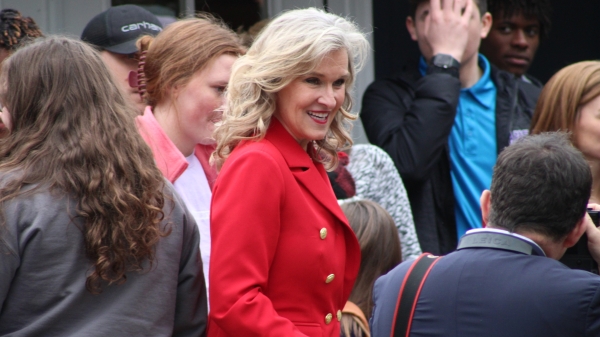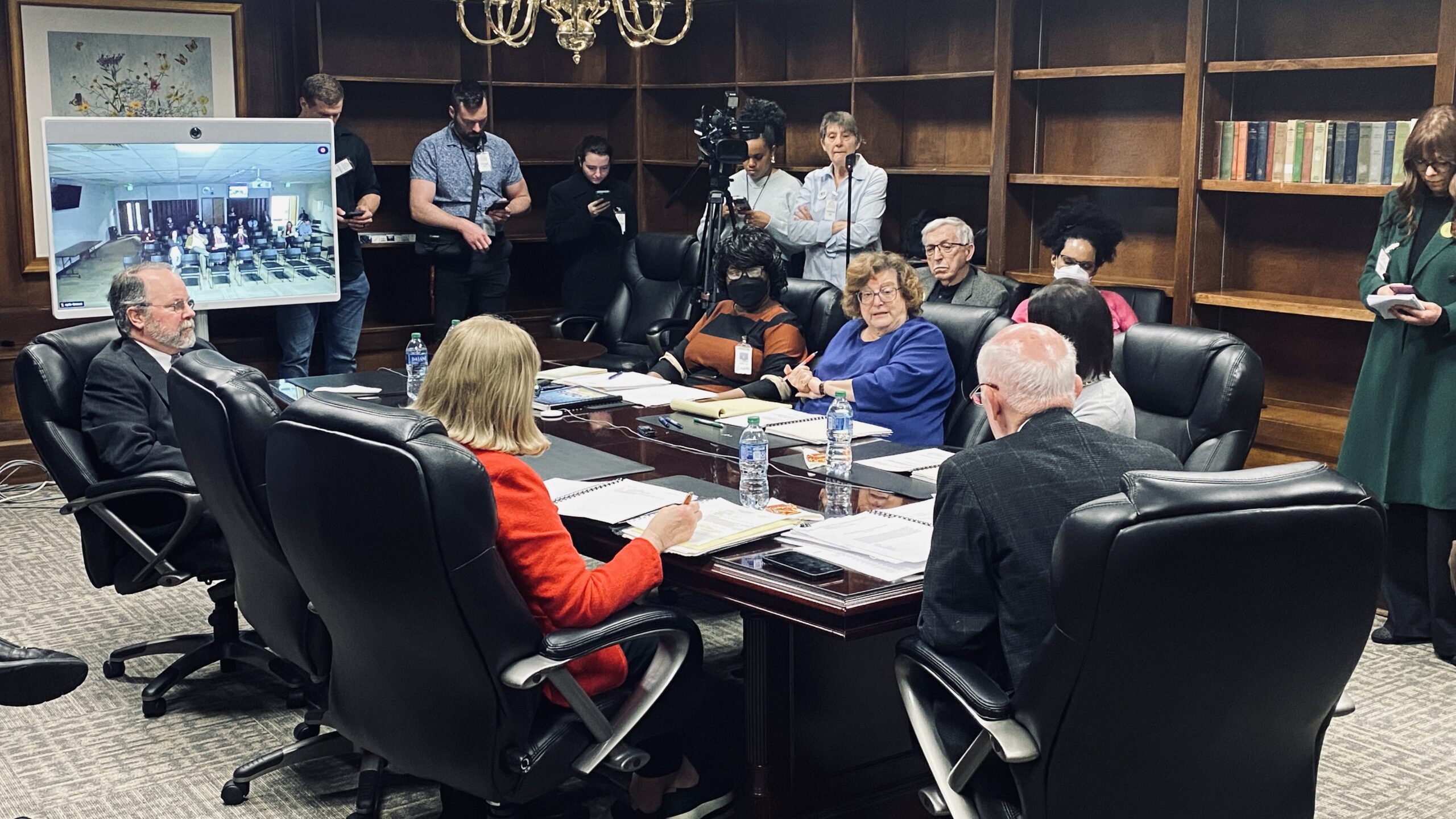|
Getting your Trinity Audio player ready...
|
On Thursday, the Alabama Public Library Service board approved changes to the agency’s administrative code that will require libraries to adopt policies keeping “material deemed inappropriate for minors” away from children and youth sections.
Many in the aftermath were asking who is responsible for deeming what’s inappropriate for minors?
“At this time the board has not discussed (that) and I cannot speak for the entire board,” John Wahl, APLS board member and ALGOP chair, told APR in a text Saturday. “I would assume that the APLS board or local library boards would have discretion to decide what is ‘deemed inappropriate.'”
Whether it is APLS or the local library board in charge of that designation will be a crucial distinction.
If local library boards are the ones deeming what is inappropriate for minors, then the policy could be applied more broadly. If the APLS board is to deem what’s inappropriate, it will have to provide more clarity as the code itself does not define what is inappropriate for minors.
Wahl and Gov. Kay Ivey’s newest APLS appointees Amy Minton and Deborah Windsor tacked on the new language onto more modest code changes proposed by Ivey that just wrapped up a 90-day public comment period. There was no such comment period for the amendment added Thursday, which Wahl and Minton claimed were in response to public comments despite Minton proposing the amendment early on in the comment section.
The original amendment by Minton copied verbatim a policy from Prattville and would have required libraries to restrict materials concerning “gender identity” and “sexual orientation” from sections for minors.
It’s clear that Minton is still seeking that result from the code changes, stating in a subcommittee hearing on the code amendment that the state already has a law prohibiting certain discussions in classrooms and noting Alabama’s law requiring students to use the bathroom of their sex assigned at birth.
The policies in Prattville are currently facing a federal lawsuit from Read Freely Alabama, the Alabama Library Association and other patrons of the Autauga-Prattville Public Library.
APLS board chair Ron Snider, the only member to vote against approving the amendment to the code changes, said that lawsuit is one reason the board should not approve those changes.
Although Ivey’s proposal had been more moderate, a statement released to APR by the governor’s office Friday indicates she is happy with the approved changes by the board.
“Gov. Ivey identified a problem and took action to protect children and families visiting our public libraries,” said a spokesperson for Ivey. “The Public Library Service executive board responded favorably and the governor is grateful to the board members for adopting these common-sense policies we can all agree on.”
Clearly, not everyone can agree on the new policies.
“The policies approved (Thursday) by the state Library Service are a sequel that no one asked for. They are virtually identical to the harmful censorship policies that Prattville’s extremist-stacked library board imposed earlier this year on families who rely on the community’s public libraries,” Read Freely Alabama said in a statement Thursday. “The freedom to read is fundamental to democracy, and extremist efforts to impose discriminatory beliefs on library patrons are dangerous. We filed our lawsuit last week because it is crucial that the courts make clear that in our democracy, the government cannot discriminate or restrict the freedom to read, and we will continue to fight these harmful censorship policies in Alabama.”
The policies would also prevent libraries from purchasing any material deemed inappropriate for minors, meaning any young adult literature that runs afoul could not simply be placed in the adult section for parents to check out for their children. The material would not be allowed in the library at all. This is in line with Prattville’s policies.
The policy also does not define sexual content, which could be a broad-ranging phrase. In Prattville, this has included the popular young adult fiction book “Looking for Alaska” by John Green.
The policy would also apply beyond books to other materials in the library including DVDs and BluRays.
The changes won’t go into effect until July, at which point policies would need to be implemented at local libraries in order to receive state aid, which is crucial for many rural libraries and often is the funding source for new materials.




















































